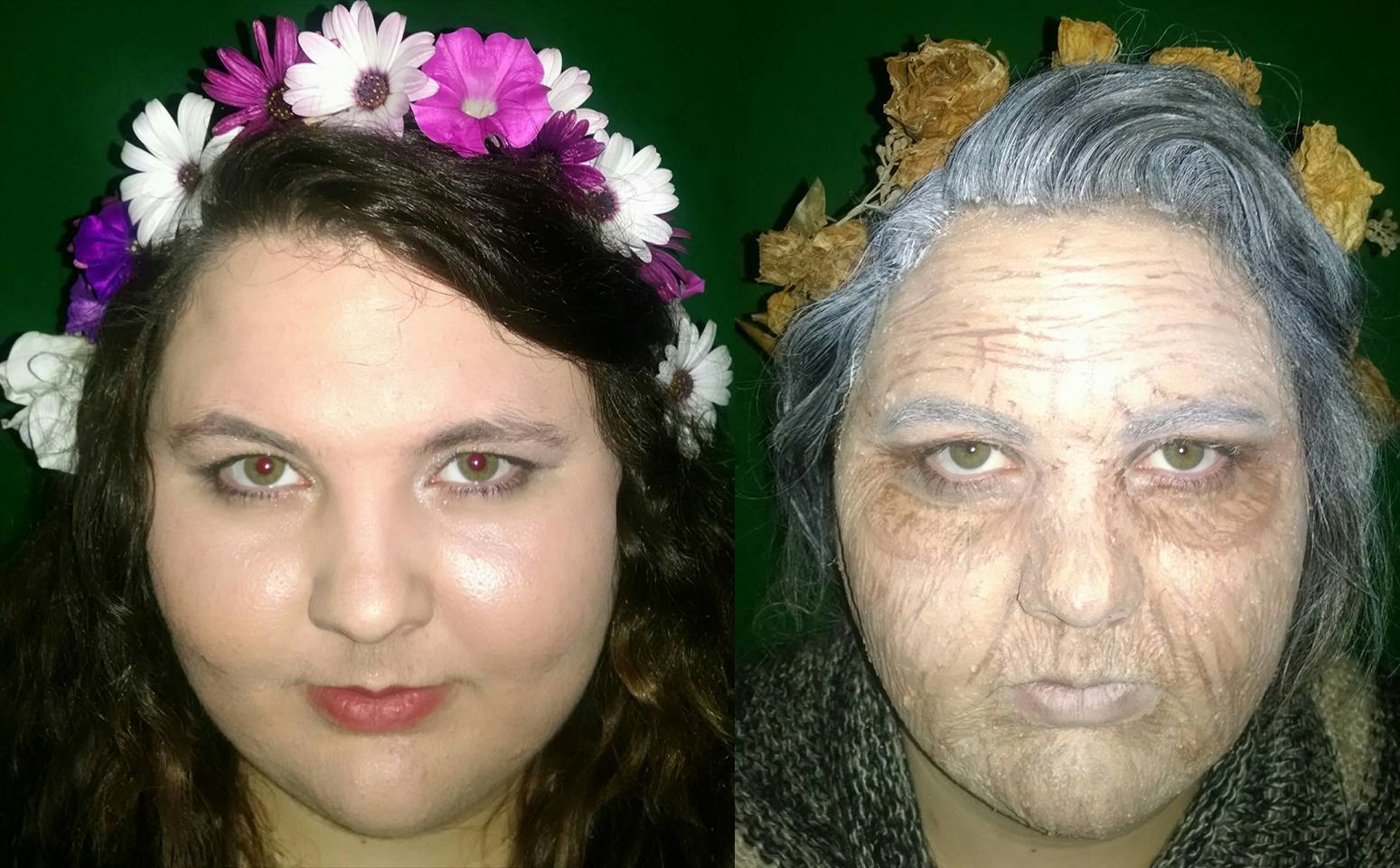-
Posts
770 -
Joined
-
Last visited
-
Days Won
7
Everything posted by GreenEyedTrombonist
-
@EvelynD Was that the entire message from A? I mean, they outright say they wouldn't be a good advisor since they don't know your topic. Maybe ask them to clarify the different roles advisors and mentors have within that program? It does sound like Prof B is being polite. If you don't have any immediate plans to visit that university, I would probably respond by thanking them for letting you know, expressing sadness that they are leaving the program, and asking if it would be possible to remain in touch with them (if you want to).
-
Working on an SoP right now for a great program.

-
.thumb.jpg.d41d3c203d288386db9368d4b7ab757a.jpg)
Good luck. I'll start writing my SOP fairly soon. I started the application process by cleaning up and rewriting portions of my two writing samples which received outstanding grades, but I wanted them to be perfect. It took me three weeks to edit and rewrite, edit and rewrite, and finally edit and rewrite. They are finally ready to be read by the three professors that I've chosen in my MA program for final comments and approval--one of which was the original professor I wrote for the two papers. I will do the same method with the SOP, probably writing at three or four iterations until I feel confident enough to submit to the same three professors for final approval. I hope you have several professors that can give you guidance and constructive comments.
-
-
Hey nushi, Based on how different your methodologies would be for these projects, I would suggest rethinking your methodology. If you want to use qualitative for some research and quantitative for other projects, that will probably be easier if you look for a mixed-methods program and create a study that incorporates both trajectories. What I've found as someone with an anthropological background who wants to study digital communities and communication: it can be exceedingly difficult to find a project that's the right fit when there's one (if that) prof interested in digital communities. I actually had a great anth professor say they'd love to work with me, but there is literally no one else in the department interested in the topic so there was no point in applying. It's just not widely adopted yet within anth. Instead, I'll be applying mainly to Comm programs where digital research is widespread and accepted. However, one of the things you can do to bridge the gap between the "too new" methods is to create a project that is 1. mixed-methods and 2. incorporates both the new methods and well-founded and accepted methods to lead to more robust findings. For my intended research, one of the things I'm doing is a mixed-methods approach that situates the contemporary situation within the larger context of historical communication changes. This allows me to take a past, present, future approach to the project that I feel will make the work stronger and more applicable to future researchers. Sorry if any of this doesn't make sense. I was typing this during a voice chat meeting and am not sure if it messed with the way I was typing.
-

AdCom requires thesis, but I think it sucks
GreenEyedTrombonist replied to EvelynD's topic in Writing Samples
That's probably your best bet, Evelyn. Explain the situation and hopefully they'll agree that you can either submit something else or update the grammar. -
Have you spoken with your advisor about this? Some advisors don't consider it a problem while others will or some may have you take additional steps since you're so close to the topic. I studied a community I'm a member of for my MA and my advisor had me jump through a few extra hoops to make sure I wasn't letting my emotions cloud the results of the study (more than they would for any scholar, at least).
- 5 replies
-
- research topic
- medicine
-
(and 1 more)
Tagged with:
-
Something to consider that I'm running into now. If you would like to apply for external funding for your PhD after your MA, the NSF graduate student research (grant, fellowship...don't remember the official title) is only for graduating seniors and graduate students in their first year of grad school. It is possible you will be unable to get funding through NSF to help offset the cost of a PhD program (external sources of funding can make you look pretty good as an applicant). That being said, I also did a terminal MA and it helped quite a bit by giving me research, presentation, and publication experience that has made me a stronger candidate (imo).
-
The same basic structure should generally be the same, unless the programs are asking for different things to be addressed. Usually the differences between SoP prompts will be fairly minor and you'll be addressing 1. your research interests, 2. why the school is the right fit for you, 3. future plans, 4. probably how your past experiences have prepared you for your research at that school. I'll be keeping my paragraphs about my past and research generally the same, though with minor edits to emphasize the most salient points for each institution. I'm writing new material for points 2 and 3 for each program, though some sentences, as Jessica mentioned, will be similar or the same (ex. you want to work with two professors at different schools for the same reasons).
-

2018 Applications Thread
GreenEyedTrombonist replied to phdthoughts's topic in Communication and Public Relation Forum
That's awesome @phdthoughts ! Basically all of the replies I've gotten from Comm programs have been positive and all of the replies from Anth programs have been, "have you thought about Comm?" Guess the writings on the wall, haha. I've been working on my SoP and actually came by to see if anyone wants to do a review exchange. -
Hey @rhlabbasinejad ! Welcome to the dark side (aka anth, haha). Before any of us can really answer your main question, what are your specific research interests within anth? What do you want to study, where do you want to study (research location, not school), and how do you want to study it? Since goodness of fit is super important in an application, answering these questions may help us narrow down programs at which you would be happy. Now, as for the two questions you have listed. Other than a lack of classes, I know nothing of your background. Everyone has a chance to get into a PhD program, but there are a lot of factors to consider. What can you leverage that would make you a good anth applicant? Have you tried to attend conferences, done any research outside of school, spent time exploring what anth has to offer outside of the two classes you took? Furthermore, is your research topic connected to your previous studies in Mechanical Engineering or can you leverage that degree towards your future studies? I don't know much about mechanical engineering, so this example may not connect, but I did a project where we partnered with Nissan to explore how people interact with parking and how that might change with the adoption of autonomous vehicles. Most anth programs will state that they consider your SoP (aka where you show goodness of fit) the most important factor in an application with GRE and GPA seen as less important and usually used to create a basic cut-off more than anything else. Given your different background, I have no idea how your GPA will factor in, but GRE scores should have the same weight. As far as funded MA, that's tricky. There are many MA programs in the US that do not state they are funded (and quite a few that do), but they actually provide employment opportunities that can cover or reduce tuition. For instance, I did not attend a funded MA, but I became a TA and had my tuition waived (plus a monthly stipend) the last year of my program. In the first year of my program, I worked as an RA and had a federal grant reduce my tuition. It may be safer to go Canada first (don't mean to pry and no need to answer, but I am a bit curious about what kind of family issues make all of Canada not an option), but, as an ignorant citizen of the US, I know very little about Canadian programs.
-
Totally forgot about certificate programs! Good point @Bioenchilada !
-
Hey @esparean ! I left comments on the doc. My comments may be a little harsh (sorry about that), but I hope you see the value in them. In addition, I would suggest reading the pinned posts about SoPs. There is a particularly good comment thread about how to organize the SoP. I like the Focus, Fit, Future approach. This means you talk about what your research interests are, some specifics of how you got to those interests and ways you want to pursue those interests (connecting methodology to the profs you want to work with, if possible) in the Focus section. Fit is about why you want to work with specific profs at the school and elements of the program that you could benefit/work within. Future is why you want to pursue this degree in the long run and, again, why this particular program is the best choice to help you reach those goals. I'm also looking for editors right now. Let me know if you want to tear my SoP apart.
- 8 replies
-
- statement of purpose
- sop
-
(and 1 more)
Tagged with:
-

Overwhelmed in the search for the right department
GreenEyedTrombonist replied to Crit_Sociology's question in Questions and Answers
Hey OP, Sorry you're stressed! Have you looked into applied programs or terminal MAs? Usually community colleges only require an MA to teach (though you'll probably be in competition with PhDs for those jobs; something to consider) and applied programs are geared towards entering non-academic fields. As for your questions, your GPA could hurt your chances of getting into a program. Many schools have cut-offs and may not even look at your application (some filter apps that don't meet cut-offs out before they even come across a real person). Since you're looking at socio and anth, see if you can reach out to some of the programs with your concerns. They're pretty good at being honest. As for narrowing interests, you do have theoretical frameworks and general areas you are interested in. Maybe read the work of professors at the programs you're considering and see who lines up with your theoretical approaches. This may also help you figure out what your actual interests are regarding region and specific foci. I had a 3 year break between undergrad and my applied MA. In between I presented at a conference/co-wrote a paper and began doing volunteer work that related to my academic interests. I think these both helped me prepare for grad school and made it clear that, though I took time off, I was still thinking academically. Hope this helps!- 5 replies
-
- department
- critical theory
-
(and 4 more)
Tagged with:
-
@Peanut I see your point about not wanting to commit yourself and pigeon-hole (basically) yourself to one area. However, instead of thinking of it as this research topic will define your entire future research, think of it as, "What can you research now that will potentially lead to those expanded opportunities in the future?" I have friends who had the same mindset and stressed over what to do for their project specifically because they didn't want to put themselves in a corner. As soon as our profs explained that this research project does not need to dictate their entire professional future it took a weight off and allowed them to choose a project that they're happy with.
-
Again, not sure if it's the same for your area, but when I'm looking at programs, I look for a few things: 1. Professor Fit (we've already talked about this) 2. Research Opportunities (which professors currently have grants, are there labs or large research programs, like MIT for example) 3. Department Culture (sometimes profs don't get along, some departments encourage inter-disciplinary work, some foster student competitiveness while others want cohorts to be more cohesive) 4. Campus Culture (Inter-disciplinary comes into play here as well, how do the departments communicate with each other, if the program requires electives outside of the department, how hard will it be to get the classes I want/need, are the classes I'd want to take offered, could I reach out to another department about my research interests if I see a benefit there, etc) 5. What is the department dedicated to? You might have a program that emphasizes historical perspectives, some cutting edge methodology, some big data, and most will state whether they focus on training future educators or professionals in whatever sector. What does the program put in the About Us section? What do they emphasize? What do they care about? Do these things line up with your passions? 6. Any additional information about the department that might be of interest to you. For instance, one of my programs got new equipment related to live-streamed content. I have a background in live-stream content as both an entertainer and moderator so this is something that I can mention in my SoP as a way my background could benefit the program. That's just a few of the things I look for. I basically have each program listed on a separate piece of paper and write down the answers to all of these questions and how it relates to my goals. Then I take that information and incorporate it in my SoP to show I've truly researched the program and know exactly how I would fit and benefit them.
-
Thanks @Pencilvester ! Sent you a message.
- 8 replies
-
- communication
- statement of purpose
-
(and 3 more)
Tagged with:
-
It sounds like you want to just cut out Harvard and be done with it. I would consider the job angle, though, before you finish. In your field, are most of the profs coming from a specific set of schools, like Harvard, or is it more spread out? You don't want to reduce your chances of getting a job if you don't have to, imo.
-
@samman1994 So if it's about the same in terms of research interests and available faculty, what kind of labs do they have? Do they have extra programs that you could participate in? Are you expected to TA on top of RA or will most of your funding come from an RA position? I've probably made it clear in our other conversations that this isn't my field, so these could be things to consider or they might have no bearing on your decision. @moiselle I do agree with samman on this. The "easiest" schools to get into won't be because they are a certain rank, but because your research interests are the perfect fit for that school. This forum is riddled with people mentioning getting into a higher tier school and being rejected at their safety. If you have time, improve your GRE scores (probably focusing on Quant since you're in bio) and figure out which schools have faculty that are most closely aligned with your research interest and methodology.
-
Hey all, Anyone willing to review the first draft of one of my SoPs? I can offer an exchange and/or virtual brownies. This is for a Communication PhD program.
- 8 replies
-
- communication
- statement of purpose
-
(and 3 more)
Tagged with:
-
Hey OP, It could mean any of the options you stated above. In my case, one of the schools that rejected me (in anth) offered to move my application to the MA pool instead. Considering I only had one semester left in my own MA (also anth) I considered this to be an automatic thing they did for all rejected applicants (and obviously said no). They may see the MA program as a way to get money to help fund the doctoral program or they may think you have potential but aren't yet ready for a doctoral program. There's no real way of knowing. Either way, it probably doesn't hurt your chances to say you'd be interested in their MA if rejected from their PhD, as long as you'd actually be interested in their MA. If anyone else has more insight though, I'm all ears.
-
How good is the research fit at Harvard?
-
@EvelynD I'm sure you're going to be awesome! I just spent over 3 hours updating my CV because one of the POIs I emailed last night asked for it and I hadn't updated it in a year. x]
-
@Sigaba In this case, I was talking 3 or more times (I should have been more specific), but, as per my comment on not studying 24/7, I agree you can overdo it. Mostly, I think if the OP thinks the content of the orals was the problem, studying and a few practice sessions will be good enough. However, if OP thinks the delivery played a part, it might be necessary to practice more than a few times.




